Jul 25, 2022 | Civil Rights Law, Police Misconduct
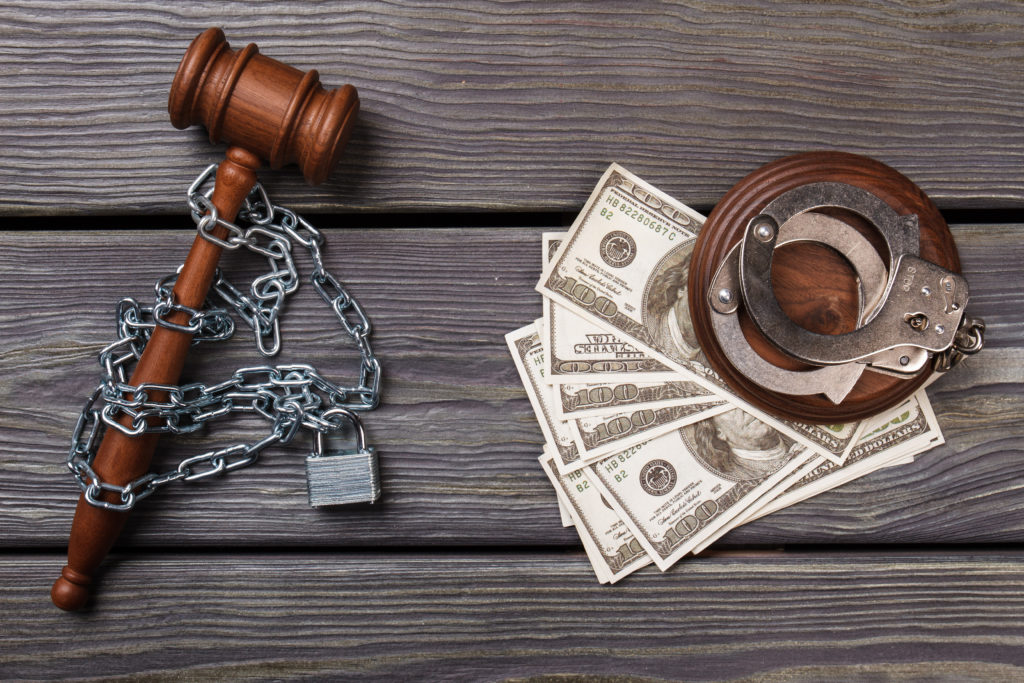 Anyone who’s watched a cop show has likely heard of Miranda rights. At some point during an arrest, you’ll hear the officer say, “You have the right to remain silent. Anything you say can and will be used against you in a court of law. You have a right to an attorney. If you cannot afford an attorney, one will be appointed for you.” The wording might vary slightly from state to state, but the message is the same: the police can’t force you to answer their questions. You have the right to remain silent to avoid incriminating yourself, something every lawyer constantly reminds their clients to do.
Anyone who’s watched a cop show has likely heard of Miranda rights. At some point during an arrest, you’ll hear the officer say, “You have the right to remain silent. Anything you say can and will be used against you in a court of law. You have a right to an attorney. If you cannot afford an attorney, one will be appointed for you.” The wording might vary slightly from state to state, but the message is the same: the police can’t force you to answer their questions. You have the right to remain silent to avoid incriminating yourself, something every lawyer constantly reminds their clients to do.
Miranda Rights became law in 1966 as a result of the United States Supreme Court (SCOTUS) case of Miranda v. Arizona. The Miranda warning — that officers are supposed to read to anyone being arrested — is intended to protect your Fifth Amendment right to refuse answering self-incriminating questions. Now, it’s important to remember that Miranda rights only take effect after you are placed under arrest. Before that, the officers can ask you anything. Officers should, but aren’t compelled to let you know that answering their questions outside an arrest is voluntary. That is why attorneys always advise the best answer is simply, “My lawyer has advised me not to answer any questions without them present.” This is especially important if you think there is any chance at all that the police suspect you of committing a crime. Even when you aren’t – are you confident that you know all of the laws and that you have not violated any law? Keep in mind Congress passes a new book of laws every single year. With that happening, even a lawyer might have trouble keeping up with every new law that is passed. Can you ever really be sure you have not violated a law? Can anyone?
What if an officer doesn’t read you your Miranda rights?
If you aren’t read your Miranda rights before officers question you while you are in custody (something called a custodial interrogation), then the state should not be permitted to legally use what you say afterward against you at trial. Statements made in response to police interrogation without a suspect being mirandized is commonly referred to as fruit of the poisonous tree. Recognizing that type of evidence is inadmissible at trial is supposed to be the main catalyst for ensuring cops read that warning at an appropriate time because otherwise they risk losing the case and letting a supposed criminal go free — what’s the point of getting a confession from someone if it becomes inadmissible at trial?
However, just because they are required to inform you of your Miranda rights doesn’t mean they always do. The police are very skilled at trying to get information out of people and not all of them play by the book. If they believe you are guilty of something or know something, they will use every trick they know to get that information out of you, including psychological and sometimes even physical tactics. And sometimes, they don’t read you the Miranda warning. If that happens to you, you should absolutely get a good criminal defense lawyer and challenge the admissibility of the evidence.
The new SCOTUS ruling on Miranda rights
On June 23, 2022, the Supreme Court ruled in Vega v. Tekoh that if an officer doesn’t read you your Miranda rights, you cannot sue them for money damages. Basically, this means that you have no civil recourse against them if you end up having to stand trial because you were detained or prosecuted based on something you said without knowing your rights. So, even if you end up spending time in jail, losing your job, losing your reputation, and who knows what else based on ill-gotten evidence, you can no longer file a civil suit to recoup damages based on a Miranda violation. The cops may have violated your rights, but your only avenue for relief is to get the evidence suppressed in your criminal case.
That is important because before this, some jurisdictions allowed people to sue officers for violating this important civil right. Section 1983 of U.S. Code broadly authorizes civil rights lawsuits against state and local officials responsible for the “deprivation of any rights … secured by the Constitution.” Without that protection, there’s very little chance officers will face any punishment for not issuing Miranda warnings to suspects before interrogation because history has shown that police departments rarely punish their own. In fact, Supreme Court Justice Elena Kagan warned in a dissent that the Supreme Court has effectively created a new legal immunity for cops accused of violating a suspect’s Fifth Amendment rights.
Now, this ruling doesn’t mean that the evidence the cops get after speaking to you without reading your rights can be used in court, but that only comes into play if you actually know about those rights to begin with. And that is what has civil rights attorneys worried. If an officer believes a suspect doesn’t know about or understand Miranda rights, then what’s to stop them from not reading them to a suspect at all? Quite often, younger suspects or those with mental challenges may not understand their rights and will end up incriminating themselves without knowing they had another option.
And this is why, as The Clash has sung, it’s always important to know your rights.
What can I do to if the police violated my rights?
Just because you can no longer sue the police for not reading you your Miranda rights doesn’t mean you can’t sue them for other civil rights violations. If you believe you are the victim of police misconduct, such as unlawful arrest, wrongful prosecution, or excessive force it’s important that you contact a civil rights attorney as soon as possible because there are time limits to filing those claims (typically two years from the date of the incident). The Civil Rights Litigation Group has prevailed in many cases against the police in Colorado for violating people’s rights. Give us a call for a free consultation – 720-515-6165.
Call us at 720-515-6165.
Related blog posts:
Fighting back against malicious prosecution
Record the police and protect your rights
Know your rights when questioned by the police
Police misconduct and your civil rights
Wrongful arrest? Here’s what you need to prove
Jun 12, 2022 | Constitutional Rights, Police Misconduct
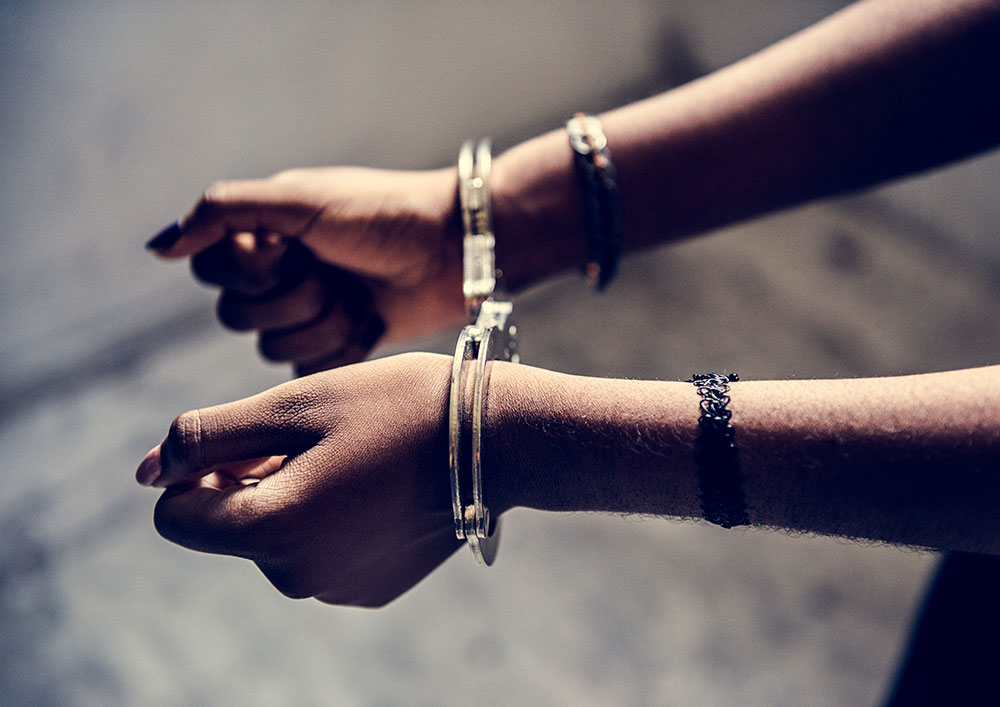
In a nutshell, Malicious prosecution happens when someone — either a police officer or a private citizen — maliciously causes judicial process to commence (often through criminal charges or a civil lawsuit) against you without evidence or probable cause, and with malice. If this has happened to you and the case was decided in your favor, you may be able to file a malicious prosecution lawsuit against that party if you suffered any damages. The laws are slightly different based on whether a federal claim or a state claim is pursued, and whether a government official or private citizen caused the harm. Generally, the claim was put in place to prevent abuse of the legal system. For both federal and state claims in Colorado, you have two years to file a lawsuit for malicious prosecution, which time period begins when the case that was wrongfully initiated is terminated in your favor (i.e. when the case against you is dismissed).
What is required to sue a police officer for malicious prosecution?
The main requirement when filing a malicious prosecution lawsuit is being able to prove that the case against you was filed without an adequate evidentiary basis (usually, without probable cause) and that it was brought maliciously. Maliciously means that the officer knew or had clear and obvious information that showed you did not commit the crime, but charged you anyway, with reckless disregard for the truth. Malice can also mean the officer charged you because of their own ulterior reasons — a reason other than to bring a guilty offender to justice. For example, a police officer might charge you with something you didn’t do because you threatened to turn them in for abusing their power or violating a law. Or they might file false charges for discriminatory reasons based on race or gender. Or they could charge you with resisting arrest or obstruction to attempt to justify/cover-up their own illegal use of excessive force. Whatever the reason, these kinds of charges may violate your Fourth Amendment rights against illegal search and seizure, and unlawful imprisonment.
In order to file a malicious prosecution claim against law enforcement officers under the Fourth amendment, you must be able to prove five things (Wilkins v. DeReyes, 528 F.3d 790, 799 (10th Cir. 2008):
- The officer caused or continued to cause you to be confined (imprisoned) or prosecuted.
- No probable cause supported the original arrest or continuing prosecution.
- The criminal case ended and was decided in your favor.
- The officer acted with malice.
- You sustained injuries as a result.
What damages can you claim from malicious prosecution?
Even if the charges filed are baseless, you still must defend yourself against them and that costs time and money. Court cases can drag on for years and attorney fees can pile up. And even if you win the case or it get dropped, you still (in most cases) must pay your lawyer.
Additionally, you might face public shaming and scrutiny because of the charges. Say a police officer falsely charges you with having illegal drugs in your car. Even if the case is decided in your favor, there may have been press on the case that has damaged your reputation and lost you clients. If you spent time in jail because of the charges, you probably suffered lost wages and maybe lost your job altogether. Again, these cases can often drag on for years and you could suffer emotional damage as well as professional and financial damages.
Either way, the malicious charges have harmed you and you have a right to seek compensation for that.
Suing prosecutors for malicious prosecution
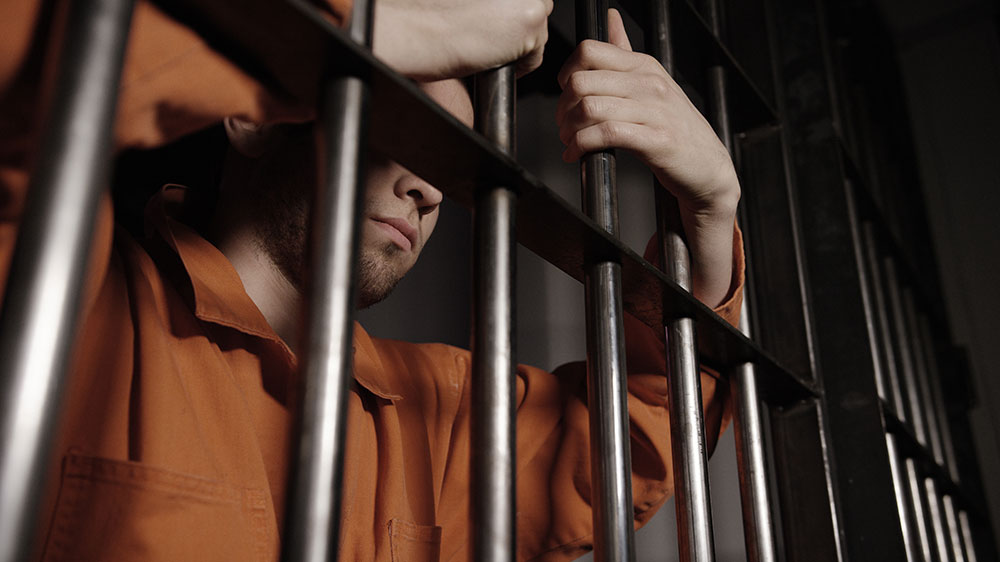
It is much more difficult to sue prosecutors for malicious prosecution because they are protected by prosecutorial immunity laws that shield them from lawsuits. These laws are designed to enable them to do their job without constantly worrying that they are going to be sued by every defendant. But there are limits to those laws and if you can prove that a prosecutor acted outside the scope of their prosecutorial decision-making and didn’t have probable cause for charges to be advanced against you, you might have a case. However, such claims are most often filed against the involved officers — who gather and present evidence at the time of arrest — and not the prosecutors.
In 2020, Colorado passed a law that allows for a state-based causes of action for civil rights violations without qualified immunity protection for police officers and now some lawyers and lawmakers are pushing for a limit to prosecutorial immunity protections as well.
An example of a malicious prosecution case
In February 2017, Juan Valenzuela was accused by Denver Police of using a fake ID while attempting to catch a flight at Denver International Airport. The ID had been through the wash so it was slightly damaged, but it was not fake. Valenzuela worked as a detention officer and offered other forms of ID, including his work ID that had a photo. He even had his supervisor at the prison call and verify his identity. But the officer simply decided that the ID felt fake and arrested Valenzuela without doing the proper research. Valenzuela spent a couple days in jail and then lost his prison job because the Denver DA decided to prosecute him and the prison couldn’t employ him until the felony case against him was resolved. It was several months before the prosecution did the necessary research and determined that his ID was valid and dismissed the case. By this time, Valenzuela has suffered financial losses from being out of work and emotional stress as well. The Civil Rights Litigation Group represented him in his case against the Denver Police officer and he was awarded $500,000.
How do you fight back?
If you have been wrongly prosecuted and believe your case meets the requirements, you should contact a Colorado attorney as soon as the wrongful case against you has been dismissed in your favor. Do not take a plea bargain if you believe the charges are without basis, as that would not lead to the required “favorable termination.” Call and seek advice if you are unsure whether a criminal resolution you have been offered will fit within the requirements to preserve your case.
The Civil Rights Litigation Group has successfully fought malicious prosecution claims many times before and can help you vindicate your rights while seeking damages. Call us for a free consultation.
Call 720-515-6165 for a free consultation.
__________________________________________
Related blog posts:
Know your rights when questioned by the police
When is recording conversations legal in Colorado?
Police misconduct and your civil rights
How do I fight illegal search and seizure in Denver?
Apr 19, 2022 | Constitutional Rights, Police Misconduct
 One of the best things to happen for civil rights cases has been the cell phone video camera. Before cameras were in every cell phone, cases against the police often came down to “he said, she said” and the courts and juries often sided with the police. Eyewitnesses can be mistaken but videos rarely lie. If you are ever in a situation with the law, take the opportunity to respectfully record the police and protect your civil rights.
One of the best things to happen for civil rights cases has been the cell phone video camera. Before cameras were in every cell phone, cases against the police often came down to “he said, she said” and the courts and juries often sided with the police. Eyewitnesses can be mistaken but videos rarely lie. If you are ever in a situation with the law, take the opportunity to respectfully record the police and protect your civil rights.
Is it legal to record the police?
If you are in a public place and don’t do anything to interfere with the police, the First Amendment gives you the right to record them while they are working. Not only is it about your personal rights, but it also involves the public’s right to know how public servants are behaving on the job. For example, in Fields v. City of Philadelphia, the Third Circuit Court of Appeals affirmed the right to record. “We ask much of our police. They can be our shelter from the storm,” wrote Judge Thomas Ambro. “Yet officers are public officials carrying out public functions, and the First Amendment requires them to bear bystanders recording their actions. This is vital to promote the access that fosters free discussion of governmental actions, especially when that discussion benefits not only citizens but the officers themselves.”
While the right to record the police has not yet been affirmed by the Supreme Court, a prevailing weight of the academic and legal community have affirmed it, including six out of 12 circuit courts in the U.S. These and many other district courts have recognized this right and agree that recording the police is legal under most circumstances. Cases are currently before other circuit courts, including the Tenth Circuit Court of Appeals, to address the issue and will likely lead to full consensus. The Civil Rights Litigation Group currently has several cases that rely on the prevailing weight of circuit authority in asserting the right.
Why should we record the police?
The videos that have come out in the past few years have shed some much-needed light on the actions of the police and their willingness to lie to protect themselves. The George Floyd case is a perfect example as the initial police reports paint a very different picture than what was shown in the videos. Had the incident not been recorded, it’s possible that those officers would still be on duty. The videos taken that day not only showed the public the truth but ended up being instrumental in the officers being held accountable for Mr. Floyd’s death.
When is it legal to record the police?
There are two places where you have the right to record the police: when they are on public property or when they are on your personal property. When a police officer is in public, they have no expectation of privacy and therefore you have the right to record their actions so long as you don’t harass them or obstruct them in any way. It’s best to quietly stand on the sidelines at least 15 feet away so that there is no reasonable argument that you are somehow interfering with their duties. There have been several cases where courts have ruled people can secretly record the police, but clearly exercising your right with a phone in clear view may also deter them from coming after you. When you record police, it is always best to do so safely.
It’s also important to note that you can only record the police when they are on duty. If you happen to see them off duty but in public, don’t record them. Like you, they have some rights to privacy when they aren’t working.
What to do when you record the police
- Most important, do not interfere with them at all. Keep a safe distance away and don’t harass or yell at them. If an officer asks you to move back, take a few steps backward to demonstrate that you intend to record without interference.
- Keep your phone in full view so they are aware they are being recorded. People tend to behave better when they know their actions are being recorded and it’s better to prevent bad behavior than go to court over it, unless your purpose is to catch them lying or engaged in unlawful behavior.
- Stay calm and courteous. Remember that anything you say will also be recorded. On that note, try to stay as quiet as possible so that any audio of the police can be heard on the recording.
- If the police ask you to move for safety reasons, comply but keep recording. Ask them why you are being asked to move and how much the officer is asking that you move so that it is recorded and noted that you are obeying them. Again, remember to stay calm and courteous.
- Barring extenuating circumstances, remember that a police officer cannot search your phone without a warrant, even if they arrest you. You are not required to give them your password or delete anything just because they tell you to.
- If it looks like the police might confront you about your recording, email it to someone you trust immediately. This way you can preserve a copy of it in case they do try to delete it. Don’t email it to yourself because they could delete that from your phone if they gain access to it. Instead, email it to a family member or friend you trust.
- Know when to walk away. Remember that just because you have the right to record them doesn’t mean they might not still act out against you. If they order you to do something, don’t put yourself in danger just to make a point. But suppose they do take action against you. In that case, it may be even more important to keep recording so that you can prove that they forced you to stop recording, turned off your phone, took your phone, or otherwise did something that would chill a person of ordinary firmness from exercising their First Amendment right to record.
- Finally, if you do end up recording something important, don’t post it online or on social media because it could end up hurting the case. It’s best to show it to an attorney first because they will know how to use it and how to properly get the media involved without risking libel or slander.
What to do if your rights have been violated by the police
If the police have mistreated you or violated your civil rights, it’s important to speak to an attorney who is familiar with these kinds of cases and dealing with the police. The Civil Rights Litigation Group has handled numerous cases involving police misconduct and we know how the system works. Call us for a free consultation and we can discuss your case.
Call 720-515-6165 for a free consultation.
__________________________________________
Related blog posts:
Know your rights when questioned by the police
When is recording conversations legal in Colorado?
Police misconduct and your civil rights
How do I fight illegal search and seizure in Denver?
Aug 28, 2021 | Civil Rights Law, Police Misconduct
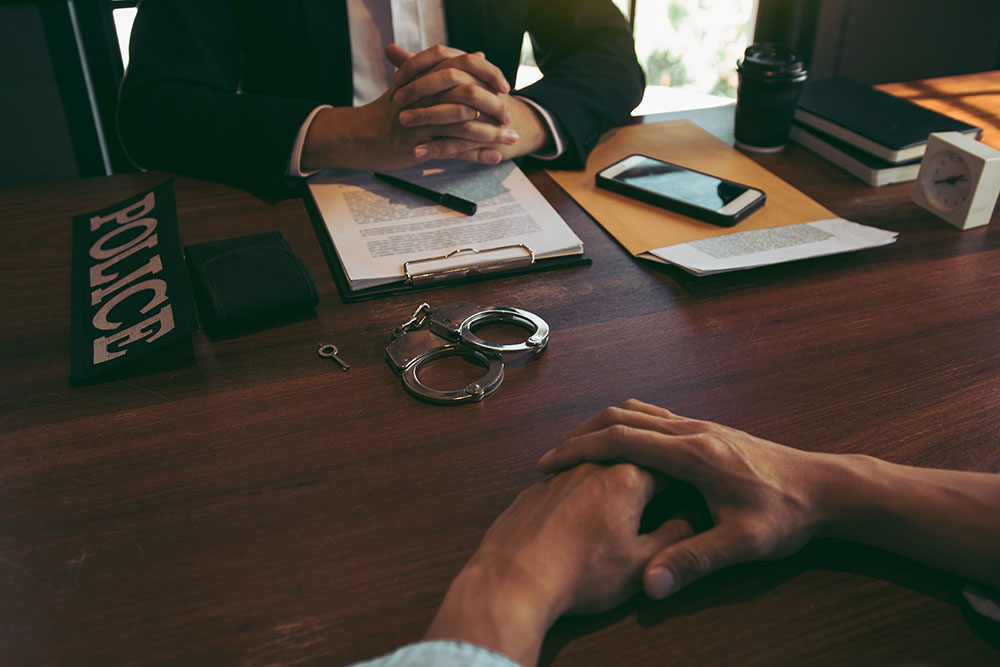 At some point in your life, you will likely be questioned by the police, whether about something you witnessed or something you are being accused of doing. If you’ve witnessed a car accident or crime of some sort, you should give a statement to the police. But if there is any chance at all that they suspect you of something, it’s important to know your civil rights with regards to answering their questions. If the police believe you have information that they need, they won’t volunteer that information unless they are arresting you and reading your Miranda rights. They often count on people not knowing their rights when in these situations. The main thing to remember is that you have the right to remain silent and the right to have an attorney present, even if you aren’t being arrested.
At some point in your life, you will likely be questioned by the police, whether about something you witnessed or something you are being accused of doing. If you’ve witnessed a car accident or crime of some sort, you should give a statement to the police. But if there is any chance at all that they suspect you of something, it’s important to know your civil rights with regards to answering their questions. If the police believe you have information that they need, they won’t volunteer that information unless they are arresting you and reading your Miranda rights. They often count on people not knowing their rights when in these situations. The main thing to remember is that you have the right to remain silent and the right to have an attorney present, even if you aren’t being arrested.
The police also count on our basic human nature when it comes to answering questions, and in an interrogation room they know all the tricks. Here’s the problem: “When your brain is thinking about the answer to a question, it can’t contemplate anything else.” (“Want To Know What Your Brain Does When It Hears A Question?“, Fast Company) Once someone asks you a question, your brain immediately starts working on the answer whether you want to answer it or not. And our brains can only think about one idea at a time, so the police know that asking questions can mess with our thought processes. So the hard thing is knowing how and when to keep quiet even though your brain is focusing on nothing other than the questions the police are asking you.
The Fourth Amendment
“The right of the people to be secure in their persons, houses, papers, and effects, against unreasonable searches and seizures, shall not be violated, and no warrants shall issue, but upon probable cause, supported by oath or affirmation, and particularly describing the place to be searched, and the persons or things to be seized.”
When being questioned by the police, the main thing that protects you is the Constitution, specifically the Fourth Amendment. The police need reasonable suspicion if they are going to stop you, whether you are driving or just walking down the street. If they want to arrest you or search your car, they must have probable cause. If they want to search your home, they need a warrant or exigent circumstances. If they don’t have any of these things, they must get consent and that’s why it’s important to know your rights and keep quiet. For example, just because the police pulled you over doesn’t mean they have the right to search your car so they’re going to try to get your consent. They often make it seem like no big deal and say something like, “Hey, do you mind if we take a quick look in your car?” When you think you haven’t done anything wrong, your defenses are down and you aren’t thinking about protecting yourself. And sometimes they will take the assumptive approach and just tell you that they are going to search your car, knowing that a lot of people will just let them. So remember never to consent to a search even if you are innocent. If they try to give you a hard time about it, just tell them that your lawyer told you to never consent to a search without a warrant.
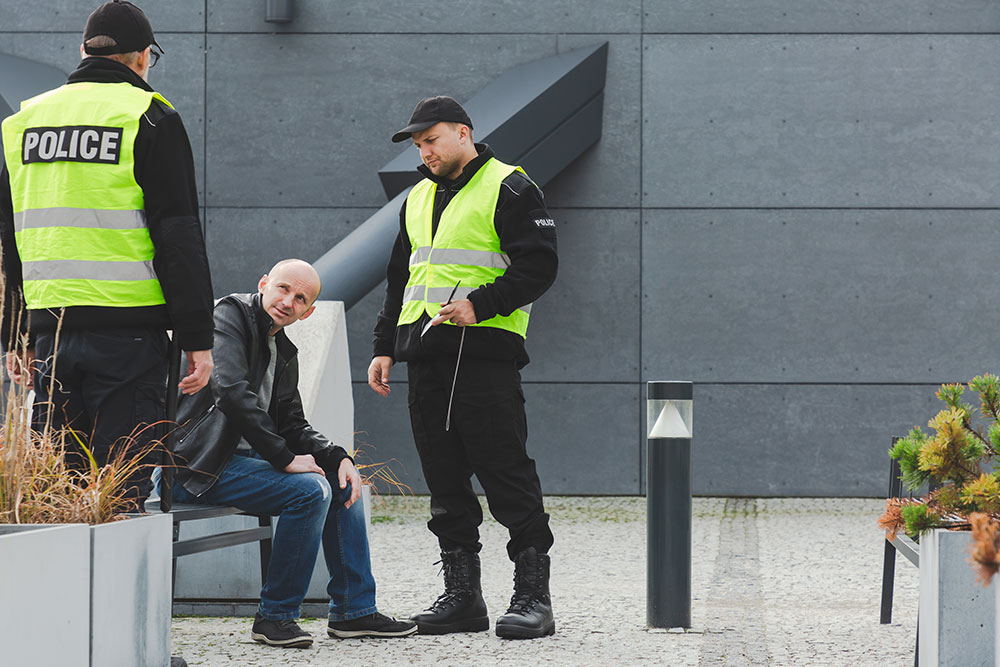
How to act while being questioned by the police
The main thing to do when being questioned by the police is remain calm and respectful. The police will often try to say or do things to make you angry or even scared because they know that’s when people lose control and end up saying things they shouldn’t. Your actions while angry could also give them probable cause to do a search so do everything you can to remain calm and in control. And definitely resist the urge to argue with them because they are very well trained in that art form and it rarely ends well for you.
Once you are calm, simply ask the officer if you are being detained. If they say no, ask if you are free to leave. If they say you are, then simply walk away. Don’t run or do anything to escalate the situation, and don’t taunt them or respond to their taunts. If the police suspect you of doing something or believe that you have information they want, they will continue to try to get you to react in some way that gives them reason to detain you.
What to do if you are detained
Being detained is not the same as being arrested, but that can still happen so it’s vital to know your rights. If they say you are being detained, ask for how long. They can’t detain you for an unreasonable amount of time without probable cause so this is an important question to ask because it lets them know that you are aware of this right. Once they tell you how long you are being detained, ask them why. Again, you have a right to know why they are detaining you and they must have reasonable suspicion to do so.
Another important thing to remember when being detained is that you also have a right to know the officer’s name and badge number. Most Colorado law enforcement agencies require the officer to give you their business card when requested. In addition, they can’t retaliate in any way just because you asked them for this information.
If you are pulled over and then detained, they will often ask if they can search your car. Ask if they have a search warrant and if they say no, calmly say that you do not consent for them to search your car. Once again, it’s important to be respectful and stay in control so that you don’t give them a reason to do a search. When being detained or even just stopped on the street, many states allow officers to do a pat down to be sure you aren’t carrying any weapons, but any search beyond that requires a warrant, exigent circumstances, or your consent — so don’t give that to them.
While you are detained and being questioned by the police, the main thing to remember is that you have the right to remain silent. Aside from telling the officer your name and possibly your address, you don’t have to answer any other questions. If you are being detained after a traffic stop, you are required to provide insurance and registration in addition to your ID, but you are still not required to answer any other questions like where you are going or what you are doing. However, you do have the right to ask questions so don’t be afraid to ask them why they stopped you, why they are questioning you, and if you have the right to leave.
Many innocent people are in prison simply because they started talking to the police. We wrongly believe that only guilty people stay silent and that the innocent will always try to help by answering questions. In fact, the police will use this against you and often say something like, “If you haven’t done anything wrong then you don’t have anything to fear.” They know it’s in our nature to answer questions, especially if we don’t think there’s any harm in doing so. But if the police have detained you then they already suspect that you are guilty of something so don’t give them any help in that regard. If they arrest you, they will often read you your Miranda rights and remind you of that — but not always — so remember that you still have that right even if you are only being detained. It’s also important to remember than choosing to remain silent does not give them probable cause to do a search. So stay calm and shut up. And if for some reason you do decide to talk, you have the right for an attorney to be present so request that before saying anything.
Were your rights violated while being questioned by the police?
If you believe that your rights were violated then it’s important that you contact a civil rights attorney who is experienced in dealing with the police. We work diligently to ensure police accountability and fight those who violate your civil rights. For a free, no-obligation consultation with the Civil Rights Litigation Group, contact our Denver CO law firm today at (720) 515-6165 or use our online contact form.
Call 720-515-6165
Additional Resources:
What Does the Fourth Amendment Mean? (uscourts.gov)
Know Your Rights (ACLU)
Police misconduct and your civil rights
Police accountability improving in Colorado
Feb 19, 2021 | Civil Rights Law, Employee Rights, Police Misconduct
 If you feel your civil rights have been violated, you will want to gather evidence to show that you have a case. In fact, obtaining information before you contact a lawyer is a good idea because many attorneys will want to see that information before deciding on whether to take on your case. The type of evidence and information your attorney needs is fairly straightforward, but the more you are prepared, the easier it will be. And don’t worry, you don’t need to be a private investigator or CSI fan to gather evidence — everything we’ve listed below is available from public records. Remember: the sooner you get all the evidence to your attorney, the faster the case can be reviewed and then you and your attorney can move forward with your case.
If you feel your civil rights have been violated, you will want to gather evidence to show that you have a case. In fact, obtaining information before you contact a lawyer is a good idea because many attorneys will want to see that information before deciding on whether to take on your case. The type of evidence and information your attorney needs is fairly straightforward, but the more you are prepared, the easier it will be. And don’t worry, you don’t need to be a private investigator or CSI fan to gather evidence — everything we’ve listed below is available from public records. Remember: the sooner you get all the evidence to your attorney, the faster the case can be reviewed and then you and your attorney can move forward with your case.
The initial statement
Before you start to gather evidence, the first thing we recommend is to write out a detailed statement for your attorney describing everything about your case, such as:
-
What date(s) did the incident(s) occur? If there were multiple incidents, describe each one in a timeline format, starting with the date of each incident, and include all details about each incident by date.
-
Everything that was said and done between you and the person(s) involved. Who was involved? What department or company were they working for at the time? What happened during the incident?
-
Who was involved? Are there any witnesses and, if so, include their contact information and what you believe they would say if called to provide testimony.
-
Identify corroborating evidence. Do you have any corroborating evidence regarding the incident that helps show your version of events is more accurate than othe persons, such as emails, voicemails, texts, video or audio recordings, etc.? Colorado is a one-party consent-to-record state. Generally, people have a right to audio-record as long as one party to a conversation (usually you) consents to the recording. Thus, typically, other people do not need to consent for you to record legally. [1]
-
How were your rights violated? If a police, jail, prison or corporate official violated your rights, identify (to the best of your ability) who that was and what they did that makes you believe the conduct at issue violated your rights.
As time passes, so do the memories of some important details. Writing down this information for your attorney can help you remember and serve as a reminder for you and/or your attorney later.
On that note, see our previous blog post on how long a civil rights case takes.
 How to gather evidence regarding injuries and/or medical records
How to gather evidence regarding injuries and/or medical records
If your case involves injuries, you will want to document your injuries with photographs, video, and/or going to see a qualified medical provider. If you were taken to a hospital or see a medical provider, you can contact them directly and request disclosure of your medical records from the provider’s records department by filling out a HIPAA-Compliant request/release of records. If you were injured while in jail and treated there, you can get medical records either from the Colorado Department of Corrections or the county jail in the city where you were held. Once you call, always ask to be transferred to the records department before you make a records request and fill out the appropriate forms to request your records.
How to gather evidence from the police, sheriff’s department, jail or other law enforcement agency
If you are pursuing a civil rights case that involves the police, you are allowed to gather evidence from law enforcement agency records departments. Typically, criminal justice and/or police records are public information. Police agencies cannot unreasonably withhold this type of information (whether requested by you or someone on your behalf), if you request it properly, including:
- Police or jail records showing arrests, detentions, booking/releases, the time you spent in jail, and/or any incident reports regarding specific incidents or occurrences.
- Video footage of you, including body cameras, surveillance video, or video taken by third parties that was obtained by law enforcement authorities.
- Any police reports on your case, including dispatch records and body camera reports.
How do I get my records from the police department sheriff’s department, jail or other law enforcement agencies
Every state is different, but the first thing you need to do is contact the police agency involved and ask for the records department. Then you will need to fill out a FOIA (Freedom of Information Act) request (for federal agencies) or a CORA/CCJRA (Colorado Open Records Act/ Colorado Criminal Justice Records Act) request for local police departments to obtain your records. The Colorado Open Records Act (1968), gives the public access to all government records except criminal justice records. Here’s a good article describing the difference between CORA and CCJRA requests and how to file them when you need to gather evidence. Usually, a person requesting records should do so by noting your right to records under CORA and/or the CCJRA, or simply by filling out and submitting the agency forms for such requests.
Occasionally, there may be some fees associated with obtaining these records based on the number of pages you request, or the time required to investigate and locate information. But this usually only occurs when there is a lot of information requested. In many cases you can request a fee waiver. In Colorado, you can get the fee information on the Attorney General’s website and on the CORA website, which has links to the forms that you will need to fill out (see the general CORA request form or the CORA Information and Procedure website for request procedures).
Here are some other agencies you can contact to obtain records and gather evidence:
DORA Public Information and Records: Scroll down to the bottom of the page to see a list of all the CORA Custodians who can help with specific types of records, such as the Civil Rights Division. This website is specific to Colorado.
City and County of Denver Police Records: On this website, you can request many types of police records, such as arrest records and photos, accident and offense reports, 911 recordings, investigation reports, and audio and video recordings. Some of these records require a fee, which is listed on the site, and most can be ordered online. If you are in another county, look up the county name and ‘police records’.
Colorado Court Records: On this site, you can look up court documents in Colorado.
Colorado Department of Corrections: You can look up offender records for the state. On the City and County of Denver website, you can look up inmates being held in Denver jails.
A-Z Index of U.S. Government Departments and Agencies: This website has a complete list of all U.S. agencies, including contact information, for any FOIA requests.
How to find the right attorney
If you believe your rights have been violated, whether it’s discrimination or police misconduct or any other civil rights matter, it’s important for you to contact an attorney who specializes in civil rights cases as soon as possible. Many claims have a statute of limitations, so time is of the essence. The Civil Rights Litigation Group has successfully handled many civil rights cases over the past 10 years and we are 100% dedicated to civil rights issues. We offer free consultations so you can find out if you have a legitimate case. Please call us at 720-515-6165.
Call 720-515-6165 for a free consultation.
[1] This may not always be available, for example if your company or department specifically prohibits all recording due to sensitive security concerns.
Dec 16, 2020 | Civil Rights Law, Constitutional Rights, Police Misconduct
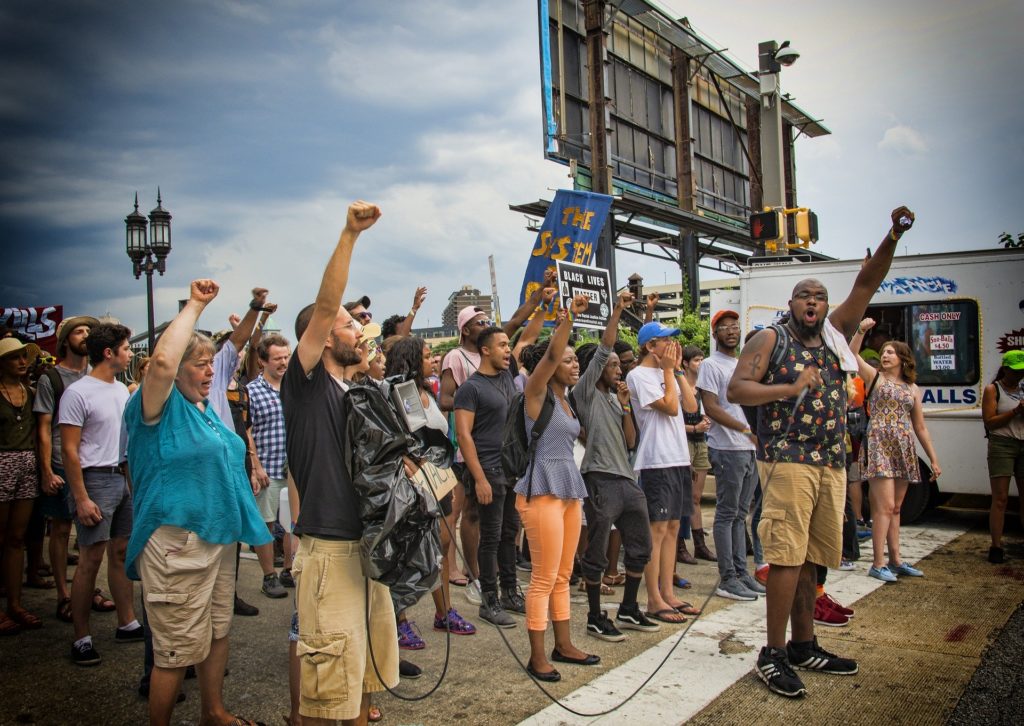 Over the summer, Denver saw weeks of protests in reaction to the death of George Floyd. And, unfortunately, some police brutality. The majority of the protests in Denver centered around the Capitol and while most people came to protest peacefully, violence erupted, and many people were injured or exposed to chemical weapons. It now appears that protesters might not be as blameworthy as had been previously reported. A recent investigation has found that police may have needlessly caused some of the violence.
Over the summer, Denver saw weeks of protests in reaction to the death of George Floyd. And, unfortunately, some police brutality. The majority of the protests in Denver centered around the Capitol and while most people came to protest peacefully, violence erupted, and many people were injured or exposed to chemical weapons. It now appears that protesters might not be as blameworthy as had been previously reported. A recent investigation has found that police may have needlessly caused some of the violence.
Police brutality and the Denver Police Department (DPD)
A recent article from Denverite (Police officers acted dangerously and anonymously during protests against police brutality and racism, investigation finds) discusses a recent investigation regarding the DPD’s response to the protests. The investigation found that the police used “unwarranted and reckless violence” and that “a lack of body camera footage and missing or vague documentation amounted to a mismanaged response from the very institution being protested.” There have been instances where the police violated their own polices by not giving orders to the crowds to disperse before using pepper spray, pepper balls, and other weapons — often recklessly. It also found that officers continued to use chemical weapons and explosives after people had started to disperse, and that some of the officers hadn’t been trained to use those weapons.
The investigation and report are from The Office of the Independent Monitor, which is “charged with working to ensure accountability, effectiveness, and transparency in the Denver Police and Sheriff disciplinary processes.” The biggest problem they found regarding the actions taken during the protests was the lack of transparency. Body camera were frequently left off. Video footage was frequently not uploaded, and officers didn’t file use-of-force reports. Many officers failed to identify themselves and/or display their badge numbers. DPD even failed to document which officers was deployed during the first four days of the protest. That makes it difficult to assess blame in the more than 100 complaints received of officer misconduct. But mostly, the report found that the Denver Police Department needs to reform its use of force, body camera practices, and officer use of specific weapons.
Were you a victim of police brutality at the protests?
If you were injured by the unnecessary force of police officers during the protests this summer, we would like to hear your story. Police brutality is illegal and officers do not have the right to violate your constitutional rights. If the police have violated your rights and caused injuries, you may be able to file a claim to recover damages fight to ensure justice is served A civil rights attorney can help you determine whether a civil rights action should be filed.
If you or a loved one are the victims of police brutality or other law enforcement abuses, call the Civil Rights Litigation Group at (720) 515-6165 or use our online contact form. Schedule your free consultation with a Denver civil rights attorney today.
720-515-6165
Additional articles and resources:
Denver police use chemicals to deter people protesting police violence as downtown erupts in chaos
Office of the Independent Monitor
Attorneys hint at massive lawsuit against Denver for police department’s response to summer protests
Additional posts on this topic:
What are my rights if I protest the police?
Police brutality cases in Colorado and your rights
How do I report police brutality in Denver?
 Anyone who’s watched a cop show has likely heard of Miranda rights. At some point during an arrest, you’ll hear the officer say, “You have the right to remain silent. Anything you say can and will be used against you in a court of law. You have a right to an attorney. If you cannot afford an attorney, one will be appointed for you.” The wording might vary slightly from state to state, but the message is the same: the police can’t force you to answer their questions. You have the right to remain silent to avoid incriminating yourself, something every lawyer constantly reminds their clients to do.
Anyone who’s watched a cop show has likely heard of Miranda rights. At some point during an arrest, you’ll hear the officer say, “You have the right to remain silent. Anything you say can and will be used against you in a court of law. You have a right to an attorney. If you cannot afford an attorney, one will be appointed for you.” The wording might vary slightly from state to state, but the message is the same: the police can’t force you to answer their questions. You have the right to remain silent to avoid incriminating yourself, something every lawyer constantly reminds their clients to do.



 One of the best things to happen for civil rights cases has been the cell phone video camera. Before cameras were in every cell phone, cases against the police often came down to “he said, she said” and the courts and juries often sided with the police. Eyewitnesses can be mistaken but videos rarely lie. If you are ever in a situation with the law, take the opportunity to respectfully record the police and protect your civil rights.
One of the best things to happen for civil rights cases has been the cell phone video camera. Before cameras were in every cell phone, cases against the police often came down to “he said, she said” and the courts and juries often sided with the police. Eyewitnesses can be mistaken but videos rarely lie. If you are ever in a situation with the law, take the opportunity to respectfully record the police and protect your civil rights. At some point in your life, you will likely be questioned by the police, whether about something you witnessed or something you are being accused of doing. If you’ve witnessed a car accident or crime of some sort, you should give a statement to the police. But if there is any chance at all that they suspect you of something, it’s important to know your civil rights with regards to answering their questions. If the police believe you have information that they need, they won’t volunteer that information unless they are arresting you and reading your Miranda rights. They often count on people not knowing their rights when in these situations. The main thing to remember is that you have the right to remain silent and the right to have an attorney present, even if you aren’t being arrested.
At some point in your life, you will likely be questioned by the police, whether about something you witnessed or something you are being accused of doing. If you’ve witnessed a car accident or crime of some sort, you should give a statement to the police. But if there is any chance at all that they suspect you of something, it’s important to know your civil rights with regards to answering their questions. If the police believe you have information that they need, they won’t volunteer that information unless they are arresting you and reading your Miranda rights. They often count on people not knowing their rights when in these situations. The main thing to remember is that you have the right to remain silent and the right to have an attorney present, even if you aren’t being arrested.
 If you feel your civil rights have been violated, you will want to gather evidence to show that you have a case. In fact, obtaining information before you contact a lawyer is a good idea because many attorneys will want to see that information before deciding on whether to take on your case. The type of evidence and information your attorney needs is fairly straightforward, but the more you are prepared, the easier it will be. And don’t worry, you don’t need to be a private investigator or CSI fan to gather evidence — everything we’ve listed below is available from public records. Remember: the sooner you get all the evidence to your attorney, the faster the case can be reviewed and then you and your attorney can move forward with your case.
If you feel your civil rights have been violated, you will want to gather evidence to show that you have a case. In fact, obtaining information before you contact a lawyer is a good idea because many attorneys will want to see that information before deciding on whether to take on your case. The type of evidence and information your attorney needs is fairly straightforward, but the more you are prepared, the easier it will be. And don’t worry, you don’t need to be a private investigator or CSI fan to gather evidence — everything we’ve listed below is available from public records. Remember: the sooner you get all the evidence to your attorney, the faster the case can be reviewed and then you and your attorney can move forward with your case. How to gather evidence regarding injuries and/or medical records
How to gather evidence regarding injuries and/or medical records Over the summer, Denver saw weeks of protests in reaction to the death of George Floyd. And, unfortunately, some police brutality. The majority of the protests in Denver centered around the Capitol and while most people came to protest peacefully, violence erupted, and many people were injured or exposed to chemical weapons. It now appears that protesters might not be as blameworthy as had been previously reported. A recent investigation has found that police may have needlessly caused some of the violence.
Over the summer, Denver saw weeks of protests in reaction to the death of George Floyd. And, unfortunately, some police brutality. The majority of the protests in Denver centered around the Capitol and while most people came to protest peacefully, violence erupted, and many people were injured or exposed to chemical weapons. It now appears that protesters might not be as blameworthy as had been previously reported. A recent investigation has found that police may have needlessly caused some of the violence.